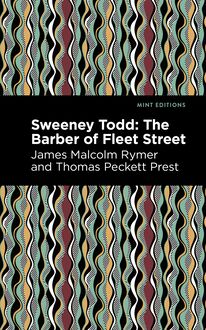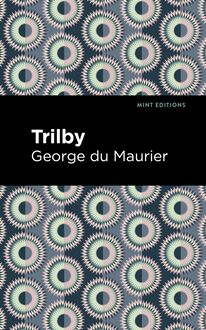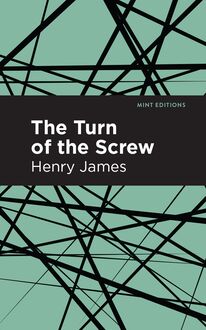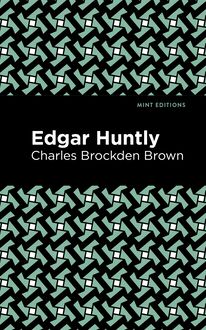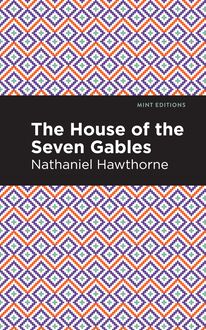-
 Univers
Univers
-
 Ebooks
Ebooks
-
 Livres audio
Livres audio
-
 Presse
Presse
-
 Podcasts
Podcasts
-
 BD
BD
-
 Documents
Documents
-
- Cours
- Révisions
- Ressources pédagogiques
- Sciences de l’éducation
- Manuels scolaires
- Langues
- Travaux de classe
- Annales de BEP
- Etudes supérieures
- Maternelle et primaire
- Fiches de lecture
- Orientation scolaire
- Méthodologie
- Corrigés de devoir
- Annales d’examens et concours
- Annales du bac
- Annales du brevet
- Rapports de stage
La lecture à portée de main
Vous pourrez modifier la taille du texte de cet ouvrage
Découvre YouScribe en t'inscrivant gratuitement
Je m'inscrisDécouvre YouScribe en t'inscrivant gratuitement
Je m'inscrisEn savoir plus
Vous pourrez modifier la taille du texte de cet ouvrage
En savoir plus

Description
The Phantom of the Opera (1910) is a novel by French writer Gaston Leroux. Originally serialized in Le Galois, the novel was inspired by legends revolving around the Paris Opera from the early nineteenth century. Originally a journalist, Leroux turned to fiction after reading the works of Arthur Conan Doyle and Edgar Allan Poe. Despite its lack of success relative to Leroux’s other novels, The Phantom of the Opera has become legendary through several adaptations for film, theater, and television, including Andrew Lloyd Webber’s celebrated 1886 Broadway musical of the same name.
In 1880s Paris, the legendary Palais Garnier Opera House is rumored to be haunted by a malignant entity. Known as the Phantom of the Opera, he has been linked to the hanging death of a stagehand in addition to several strange and mysterious occurrences. Just before a gala performance, a young Swedish soprano named Christine is called on to replace the opera’s lead, who is suffering from a last-minute illness. From the audience, the Vicomte Raoul de Chagny recognizes Christine, his childhood sweetheart, and goes backstage after the opera has ended to reintroduce himself. While waiting by her dressing room, he hears her talking to an unknown man, but upon entering finds himself alone with Christine. Pressing her for information, she reveals that she has been receiving lessons from a figure she calls the Angel of Music, prompting suspicion and terror in Raoul, who is familiar with the legend of the Phantom. As Raoul makes his feelings for Christine known, the Phantom professes his love for his protégé, and a battle for her affection ensues. Caught in this love triangle, threatened on all sides by jealousy and pursuit, Christine struggles to hold on as her star in the Paris Opera rises.
With a beautifully designed cover and professionally typeset manuscript, this edition of Gaston Leroux’s The Phantom of the Opera is a classic of French literature reimagined for modern readers.
Sujets
Informations
| Publié par | Mint Editions |
| Date de parution | 23 février 2021 |
| Nombre de lectures | 1 |
| EAN13 | 9781513276946 |
| Langue | English |
| Poids de l'ouvrage | 4 Mo |
Informations légales : prix de location à la page 0,0500€. Cette information est donnée uniquement à titre indicatif conformément à la législation en vigueur.
Extrait
The Phantom of the Opera
Gaston Leroux
The Phantom of the Opera was first published in 1909.
This edition published by Mint Editions 2021.
ISBN 9781513271941 | E-ISBN 9781513276946
Published by Mint Editions®
minteditionbooks.com
Publishing Director: Jennifer Newens
Design & Production: Rachel Lopez Metzger
Project Manager: Micaela Clark
Typesetting: Westchester Publishing Services
C ONTENTS P ROLOGUE I. I S IT THE G HOST ? II. T HE N EW M ARGARITA III. T HE M YSTERIOUS R EASON IV. B OX F IVE V. T HE E NCHANTED V IOLIN VI. A V ISIT TO B OX F IVE VII. F AUST AND W HAT F OLLOWED VIII. T HE M YSTERIOUS B ROUGHAM IX. A T THE M ASKED B ALL X. F ORGET THE N AME OF THE M AN’S V OICE XI. A BOVE THE T RAP -D OORS XII. A POLLO’S L YRE XIII. A M ASTER -S TROKE OF THE T RAP -D OOR L OVER XIV. T HE S INGULAR A TTITUDE OF A S AFETY -P IN XV. C HRISTINE ! C HRISTINE ! XVI. M ME . G IRY’S A STOUNDING R EVELATIONS AS TO H ER P ERSONAL R ELATIONS WITH THE O PERA G HOST XVII. T HE S AFETY -P IN A GAIN XVIII. T HE C OMMISSARY , T HE V ISCOUNT AND THE P ERSIAN XIX. T HE V ISCOUNT AND THE P ERSIAN XX. I N THE C ELLARS OF THE O PERA XXI. I NTERESTING AND I NSTRUCTIVE V ICISSITUDES OF A P ERSIAN IN THE C ELLARS OF THE O PERA XXII. I N THE T ORTURE C HAMBER XXIII. T HE T ORTURES B EGIN XXIV. “B ARRELS ! … B ARRELS ! … A NY B ARRELS TO S ELL ?” XXV. T HE S CORPION OR THE G RASSHOPPER : W HICH ? XXVI. T HE E ND OF THE G HOST’S L OVE S TORY E PILOGUE ( PLUS A “ BONUS CHAPTER ” CALLED “T HE P ARIS O PERA H OUSE ”)
P ROLOGUE
I N W HICH T HE A UTHOR O F T HIS S INGULAR W ORK I NFORMS T HE R EADER H OW H E A CQUIRED T HE C ERTAINTY T HAT T HE O PERA G HOST R EALLY E XISTED
The Opera ghost really existed. He was not, as was long believed, a creature of the imagination of the artists, the superstition of the managers, or a product of the absurd and impressionable brains of the young ladies of the ballet, their mothers, the box-keepers, the cloak-room attendants or the concierge. Yes, he existed in flesh and blood, although he assumed the complete appearance of a real phantom; that is to say, of a spectral shade.
When I began to ransack the archives of the National Academy of Music I was at once struck by the surprising coincidences between the phenomena ascribed to the “ghost” and the most extraordinary and fantastic tragedy that ever excited the Paris upper classes; and I soon conceived the idea that this tragedy might reasonably be explained by the phenomena in question. The events do not date more than thirty years back; and it would not be difficult to find at the present day, in the foyer of the ballet, old men of the highest respectability, men upon whose word one could absolutely rely, who would remember as though they happened yesterday the mysterious and dramatic conditions that attended the kidnapping of Christine Daae, the disappearance of the Vicomte de Chagny and the death of his elder brother, Count Philippe, whose body was found on the bank of the lake that exists in the lower cellars of the Opera on the Rue-Scribe side. But none of those witnesses had until that day thought that there was any reason for connecting the more or less legendary figure of the Opera ghost with that terrible story.
The truth was slow to enter my mind, puzzled by an inquiry that at every moment was complicated by events which, at first sight, might be looked upon as superhuman; and more than once I was within an ace of abandoning a task in which I was exhausting myself in the hopeless pursuit of a vain image. At last, I received the proof that my presentiments had not deceived me, and I was rewarded for all my efforts on the day when I acquired the certainty that the Opera ghost was more than a mere shade.
On that day, I had spent long hours over T HE M EMOIRS O F A M ANAGER , the light and frivolous work of the too-skeptical Moncharmin, who, during his term at the Opera, understood nothing of the mysterious behavior of the ghost and who was making all the fun of it that he could at the very moment when he became the first victim of the curious financial operation that went on inside the “magic envelope.”
I had just left the library in despair, when I met the delightful acting-manager of our National Academy, who stood chatting on a landing with a lively and well-groomed little old man, to whom he introduced me gaily. The acting-manager knew all about my investigations and how eagerly and unsuccessfully I had been trying to discover the whereabouts of the examining magistrate in the famous Chagny case, M. Faure. Nobody knew what had become of him, alive or dead; and here he was back from Canada, where he had spent fifteen years, and the first thing he had done, on his return to Paris, was to come to the secretarial offices at the Opera and ask for a free seat. The little old man was M. Faure himself.
We spent a good part of the evening together and he told me the whole Chagny case as he had understood it at the time. He was bound to conclude in favor of the madness of the viscount and the accidental death of the elder brother, for lack of evidence to the contrary; but he was nevertheless persuaded that a terrible tragedy had taken place between the two brothers in connection with Christine Daae. He could not tell me what became of Christine or the viscount. When I mentioned the ghost, he only laughed. He, too, had been told of the curious manifestations that seemed to point to the existence of an abnormal being, residing in one of the most mysterious corners of the Opera, and he knew the story of the envelope; but he had never seen anything in it worthy of his attention as magistrate in charge of the Chagny case, and it was as much as he had done to listen to the evidence of a witness who appeared of his own accord and declared that he had often met the ghost. This witness was none other than the man whom all Paris called the “Persian” and who was well-known to every subscriber to the Opera. The magistrate took him for a visionary.
I was immensely interested by this story of the Persian. I wanted, if there were still time, to find this valuable and eccentric witness. My luck began to improve and I discovered him in his little flat in the Rue de Rivoli, where he had lived ever since and where he died five months after my visit. I was at first inclined to be suspicious; but when the Persian had told me, with child-like candor, all that he knew about the ghost and had handed me the proofs of the ghost’s existence—including the strange correspondence of Christine Daae—to do as I pleased with, I was no longer able to doubt. No, the ghost was not a myth!
I have, I know, been told that this correspondence may have been forged from first to last by a man whose imagination had certainly been fed on the most seductive tales; but fortunately I discovered some of Christine’s writing outside the famous bundle of letters and, on a comparison between the two, all my doubts were removed. I also went into the past history of the Persian and found that he was an upright man, incapable of inventing a story that might have defeated the ends of justice.
This, moreover, was the opinion of the more serious people who, at one time or other, were mixed up in the Chagny case, who were friends of the Chagny family, to whom I showed all my documents and set forth all my inferences. In this connection, I should like to print a few lines which I received from General D ______ :
S IR:
I can not urge you too strongly to publish the results of your inquiry. I remember perfectly that, a few weeks before the disappearance of that great singer, Christine Daae, and the tragedy which threw the whole of the Faubourg Saint-Germain into mourning, there was a great deal of talk, in the foyer of the ballet, on the subject of the “ghost;” and I believe that it only ceased to be discussed in consequence of the later affair that excited us all so greatly. But, if it be possible—as, after hearing you, I believe—to explain the tragedy through the ghost, then I beg you sir, to talk to us about the ghost again.
Mysterious though the ghost may at first appear, he will always be more easily explained than the dismal story in which malevolent people have tried to picture two brothers killing each other who had worshiped each other all their lives.
Believe me, etc.
Lastly, with my bundle of papers in hand, I once more went over the ghost’s vast domain, the huge building which he had made his kingdom. All that my eyes saw, all that my mind perceived, corroborated the Persian’s documents precisely; and a wonderful discovery crowned my labors in a very definite fashion. It will be remembered that, later, when digging in the substructure of the Opera, before burying the phonographic records of the artist’s voice, the workmen laid bare a corpse. Well, I was at once able to prove that this corpse was that of the Opera ghost. I made the acting-manager put this proof to the test with his own hand; and it is now a matter of supreme indifference to me if the papers pretend that the body was that of a victim of the Commune.
The wretches who were massacred, under the Commune, in the cellars of the Opera, were not buried on this side; I will tell where their skeletons can be found in a spot not very far from that immense crypt which was stocked during the siege with all sorts of provisions. I came upon this track just when I was looking for the remains of the Opera ghost, which I should never have discovered but for the unheard-of chance described above.
But we will return to the corpse and what ought to be done with it. For the present, I must conclude this very necessary introduction by thanking M. Mifroid (who was the commissary of police called in for the first investigations after the disappearance of Christine Daae), M. Remy, the late secretary, M. Mercier, the late acting-manager, M. Gabriel, the late chorus-master, and more particularly Mme. la Baronne de Castelo
-
 Univers
Univers
-
 Ebooks
Ebooks
-
 Livres audio
Livres audio
-
 Presse
Presse
-
 Podcasts
Podcasts
-
 BD
BD
-
 Documents
Documents
-
Jeunesse
-
Littérature
-
Ressources professionnelles
-
Santé et bien-être
-
Savoirs
-
Education
-
Loisirs et hobbies
-
Art, musique et cinéma
-
Actualité et débat de société
-
Jeunesse
-
Littérature
-
Ressources professionnelles
-
Santé et bien-être
-
Savoirs
-
Education
-
Loisirs et hobbies
-
Art, musique et cinéma
-
Actualité et débat de société
-
Actualités
-
Lifestyle
-
Presse jeunesse
-
Presse professionnelle
-
Pratique
-
Presse sportive
-
Presse internationale
-
Culture & Médias
-
Action et Aventures
-
Science-fiction et Fantasy
-
Société
-
Jeunesse
-
Littérature
-
Ressources professionnelles
-
Santé et bien-être
-
Savoirs
-
Education
-
Loisirs et hobbies
-
Art, musique et cinéma
-
Actualité et débat de société
- Cours
- Révisions
- Ressources pédagogiques
- Sciences de l’éducation
- Manuels scolaires
- Langues
- Travaux de classe
- Annales de BEP
- Etudes supérieures
- Maternelle et primaire
- Fiches de lecture
- Orientation scolaire
- Méthodologie
- Corrigés de devoir
- Annales d’examens et concours
- Annales du bac
- Annales du brevet
- Rapports de stage
